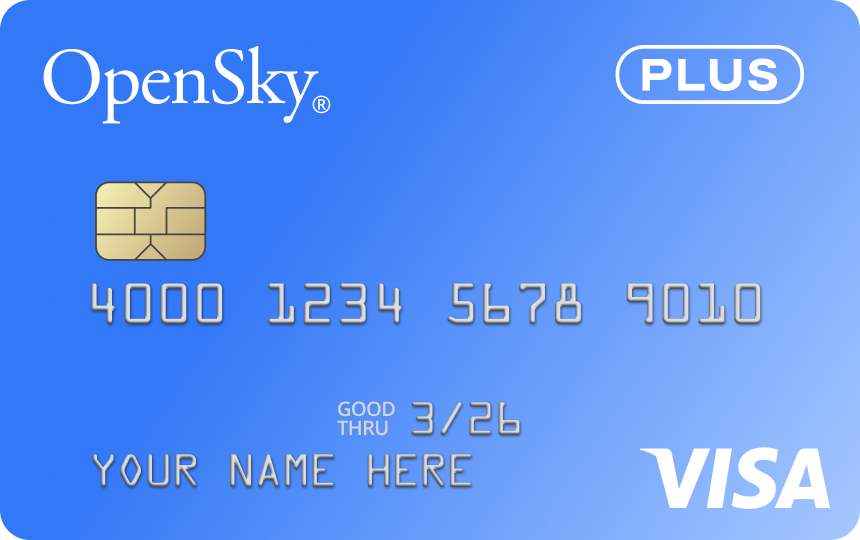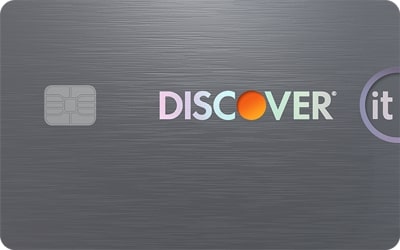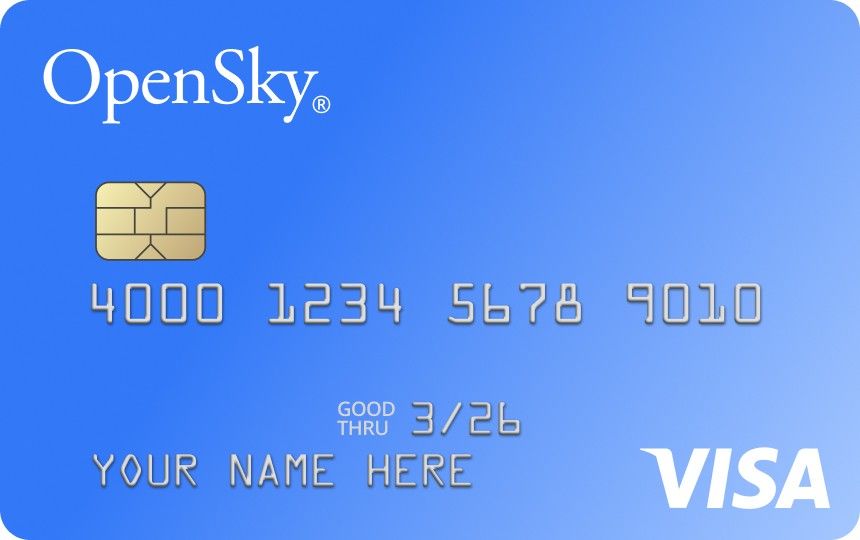OpenSky Plus Secured Review: No Annual Fee or Credit Check
The Bottom Line
4.4
This can be an excellent pick for those who have bad credit or are unbanked. The security deposit is on the high side, but you won't pay an annual fee — and unlike annual fees, security deposits are refundable.

Rates, fees and offers
Rates, fees and offers
Annual fee
$0
Rewards rate
1%-10%
Bonus offer
None.
Intro APR
N/A
Ongoing APR
APR: 28.99% Variable APR
Cash Advance APR: 28.99%, Variable
Foreign transaction fee
3% of each Transaction in US dollars
More details from Capital Bank
More details from Capital Bank
- No annual fee – keep more money in your pocket!
- No credit check required – 89% approval rate with zero credit risk to apply!
- Earn up to 10% cash back on everyday purchases
- Boost your credit score fast—2 out of 3 OpenSky® cardholders see an average increase of 47 points after 6 months
- Track your progress with free access to your FICO® score in our mobile app
- Build your credit history with reporting to all three major credit bureaus: Experian, Equifax, and TransUnion
- Seamless payments—add your card to Apple Pay, Google Pay, and Samsung Pay
- Start with as little as $300 – Secure your line with a refundable security deposit
- Fast and easy application—apply in minutes with our mobile-first experience
- Flexible payment options—pick a due date that works for you
- More time to fund—spread your security deposit over 60 days with layaway
- Join 1.6 million+ cardholders who have used OpenSky® to build better credit!
Pros and Cons
Pros
No annual fee
Qualify with limited/bad credit
Cons
Requires minimum deposit
Detailed Review
The OpenSky® Plus Secured Visa® Credit Card has a lot of upside for those with poor credit (credit scores of 629 or lower). Unlike some other credit cards in its class, the annual fee is $0, you don't need a bank account to get it, and there's no credit check when you apply, meaning there'll be no temporary impact on your credit scores.
If you're unbanked and/or have struggled to get approved for a credit card, that can be a powerful combination of features. But there are some trade-offs.
Since it's a secured credit card, the OpenSky® Plus Secured Visa® Credit Card requires an upfront security deposit. Usually, the minimum requirement is $300, which is a little higher than other secured cards. And while you can get that deposit back once you've demonstrated responsible card use — such as paying your bill on time — you don't have great options for moving up to a better product with OpenSky when you're ready.
OpenSky® Plus Secured Visa® Credit Card: Basics
Card type: Secured.
Annual fee: $0.
Security deposit: Normally $300 minimum, $3,000 maximum. Secured credit cards require you to provide a refundable security deposit, which determines your credit limit. The issuer holds this deposit as collateral in case you don't pay your bill. The OpenSky® Plus Secured Visa® Credit Card lets you pay your deposit in installments, but terms apply. More on that below.
Rewards: Up to 10% back on select purchases.
Sign-up bonus: None.
Foreign transaction fee: 3%.
APR: The ongoing APR is 28.99% Variable APR.
Compare to Other Cards

Benefits and Perks
No annual fee
The OpenSky® Plus Secured Visa® Credit Card doesn’t charge an annual fee, making it less expensive to carry than other credit cards for bad credit (including its cousin, the OpenSky® Secured Visa® Credit Card). The absence of an annual fee puts the OpenSky® Plus Secured Visa® Credit Card in direct competition with other $0-annual fee secured cards such as the Capital One Platinum Secured Credit Card and the Chime Secured Credit Builder Visa® Credit Card.
See more from Chime®
Chime says the following:
The secured Chime Credit Builder Visa® Credit Card is issued by The Bancorp Bank, N.A. or Stride Bank, N.A., pursuant to a license from Visa U.S.A. Inc. and may be used everywhere Visa credit cards are accepted. Please see the back of your card for its issuing bank.
To apply for Credit Builder, you must have an active Chime® Checking Account.
Based on a representative study conducted by Experian® in January 2024, members who made their first purchase with Credit Builder between June 2022 and October 2022 observed an average FICO® Score 8 increase of 30 points after approximately 8 months. On-time payment history can have a positive impact on your credit score. Late payment may negatively impact your credit score.
On-time payment history may have a positive impact on your credit score. Late payment may negatively impact your credit score. Chime will report your activities to Transunion®, Experian®, and Equifax®. Impact on your credit may vary, as Credit scores are independently determined by credit bureaus based on a number of factors including the financial decisions you make with other financial services organizations.
Money added to Credit Builder will be held in a secured deposit account as collateral for your Credit Builder Visa card, and you can spend up to this amount. You can use money deposited in your Secured Deposit Account to pay off your charges at the end of every month.
Out-of-network ATM withdrawal and over the counter advance fees may apply except at MoneyPass ATMs in a 7-Eleven, or any Allpoint or Visa Plus Alliance ATM.
SpotMe® on Credit Builder is an optional, no interest / no fee overdraft line of credit tied to the Secured Deposit Account available to qualifying members with an active Chime Credit Builder Account. To qualify for the SpotMe on Credit Builder service, you must receive $200 or more in qualifying direct deposits to your Chime Checking Account each month and have activated your physical secured Chime Credit Builder Visa® Credit Card or Chime Visa® Debit Card. Qualifying members will be allowed to overdraw their Secured Deposit Account up to $20, but may later be eligible for a higher limit of up to $200 or more based on Chime account history, direct deposit frequency and amount, spending activity and other risk-based factors. The SpotMe on Credit Builder Limit will be displayed within the Chime mobile app and is subject to change at any time, at Chime’s or its banking partners’ discretion. Although Chime does not charge any overdraft fees for SpotMe on Credit Builder, there may be out-of-network or third-party fees associated with ATM transactions and fees associated with OTC cash withdrawals. SpotMe on Credit Builder won’t cover non-card transactions. SpotMe on Credit Builder Terms and Conditions.
No credit check required
The OpenSky® Plus Secured Visa® Credit Card joins a growing list of credit cards that don't require a credit check in order to qualify. Here's why that might matter: A hard pull on your credit report can cause your credit score to temporarily dip a few points, a less-than-ideal consequence for people who already have bad credit. By not requiring a credit check, OpenSky® Plus Secured Visa® Credit Card better serves its target consumer trying to restore their credit.
No bank account required
You don't need to have a bank account to qualify for the OpenSky® Plus Secured Visa® Credit Card, which sets it apart from most other cards on the market. To fund the security deposit, you can use a money order or Western Union payment, and you can also pay your monthly bill with a money order if you so choose. Just be aware that these funding methods come with their own costs.
Security deposit may be paid in installments
Putting up the money (normally $300) to fund the security deposit for the OpenSky® Plus Secured Visa® Credit Card might feel daunting, but the deposit can be paid in increments, as long as it's paid within 60 days. The minimum payment amount is $25. If by the end of the 60 days the deposit hasn’t been paid, consumers will have to reapply for the card.
As with other secured cards, the security deposit you put down for the OpenSky® Plus Secured Visa® Credit Card is refundable if the account is in good standing when you close the card or upgrade it. Cardholders will receive their deposit within eight weeks after the credit card balance has been paid in full.
How it compares to the OpenSky® Secured Visa® Credit Card
The OpenSky® Plus Secured Visa® Credit Card has a sibling card: the OpenSky® Secured Visa® Credit Card. Aside from their names, the primary differences are that the Plus version charges a $0 annual fee and typically requires a $300 minimum security deposit. In comparison, the non-Plus version has an annual fee of $35, but the normal security deposit is $200. Here's how the two cards compare:
| Empty Table Header | OpenSky® Secured Visa® Credit Card | OpenSky® Plus Secured Visa® Credit Card |
|---|---|---|
Annual fee | $35. | $0. |
Sign-up bonus | None. | None. |
APR | The ongoing APR is 24.64% Variable APR. | The ongoing APR is 28.99% Variable APR. |
Minimum security deposit | $200. | $300. |
Checking account required | No. | No. |
Drawbacks and Considerations
Relatively steep security deposit
Normally, the minimum security deposit for the OpenSky® Plus Secured Visa® Credit Card is $300 — significantly more than it is for the OpenSky® Secured Visa® Credit Card and for many other secured credit cards. As mentioned earlier, you can eventually get the security deposit back, and you’re able to pay for the deposit in installments. Still, a $300 out-of-pocket expense that may not be refunded until months later can be a significant financial burden.
If you can’t or don’t want to tie up hundreds of dollars to open a credit card, consider cards that offer flexible deposit requirements, such as the Current Build Card.
Poor upgrade options
After six months of using the OpenSky® Plus Secured Visa® Credit Card, you can be considered for a credit line increase and a possible upgrade to an unsecured credit card called the OpenSky Gold card. No additional application or credit check is required for invitation recipients. But the OpenSky Gold card is far from the best unsecured credit card on the market. It comes with a $59 annual fee and a maximum credit limit of only $700.
If your credit has improved after responsible use of the OpenSky® Plus Secured Visa® Credit Card, it may be worth applying for another card. Many of the best credit cards for fair credit (FICO scores of 630 and above) don’t charge an annual fee.
How To Decide If It's Right For You
The biggest barrier to entry for the OpenSky® Plus Secured Visa® Credit Card is the security deposit. However, for those who have the funds and don't mind temporarily tying them up, it's a solid credit-building card, free of many fees common among cards for bad credit.
Cardholders can be eligible to upgrade to another card in Discover's extensive portfolio in as few as 7 months. The Discover it® Secured Credit Card also earns rewards and comes with a welcome bonus.
Looking For Something Else?
Methodology
NerdWallet reviews credit cards with an eye toward both the quantitative and qualitative features of a card. Quantitative features are those that boil down to dollars and cents, such as fees, interest rates, rewards (including earning rates and redemption values) and the cash value of benefits and perks. Qualitative factors are those that affect how easy or difficult it is for a typical cardholder to get good value from the card. They include such things as the ease of application, simplicity of the rewards structure, the likelihood of using certain features, and whether a card is well-suited to everyday use or is best reserved for specific purchases. Our star ratings serve as a general gauge of how each card compares with others in its class, but star ratings are intended to be just one consideration when a consumer is choosing a credit card. Learn how NerdWallet rates credit cards.
About the author

Jae Bratton
Lead Writer & Content Strategist


